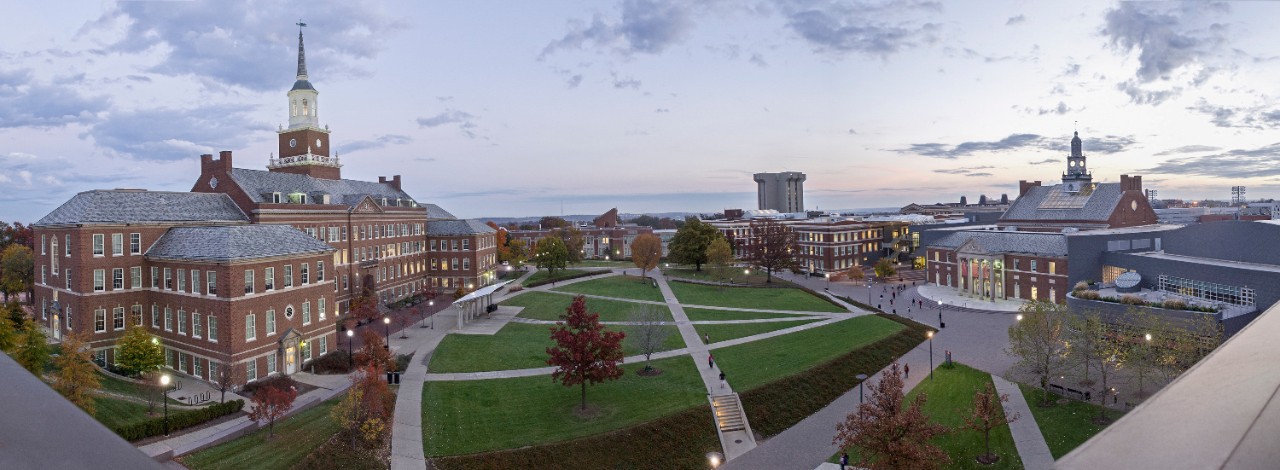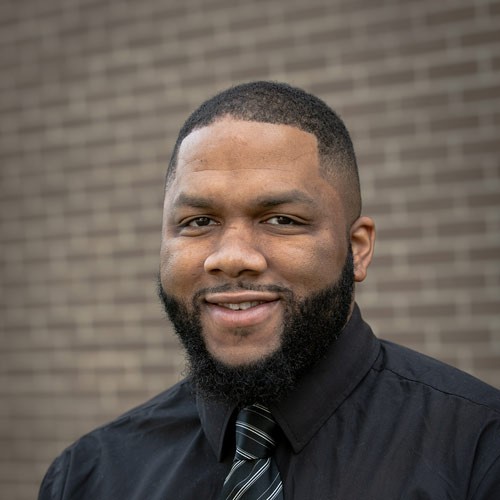
UC Latino Alumni Network members celebrate Hispanic Heritage Month and share their stories

Photo/provided
Gloria Forsythe, A&S ’95, and Pamela Mallory, CAHS ’09, are two members of an ethnic spectrum that spans cultures, countries and continents. Forsythe is a native Houstonian whose paternal heritage is Mexican and whose maternal grandparents came to Mexico from Spain. Mallory is a native Canadian whose parents came to Canada from Chile. Forsythe spoke English at home and achieved her greatest fluency in Spanish while majoring in Spanish Studies at UC. Mallory spoke Spanish with her parents at home and absorbed English through a linguistic osmosis at school. Forsythe identifies as Hispanic, Mallory as Latina.
Together, Forsythe and Mallory are reaching out to UC’s diverse population of Hispanic and Latino students and alumni through the UC Latino Alumni Network (UCLAN), an affinity group of the UC Alumni Association. On their immediate agenda is UCLAN’s celebration of Hispanic Heritage Month (Sept. 15-Oct. 15) with in-person and virtual events, including a happy hour, a virtual town hall, and a virtual Dia de los Muertos (the Day of the Dead) paint party. For full details and to register, visit the UCLAN page.
UCLAN was formed in 2018. It became an official affinity group focusing on the Latino alumni experience in 2019, with Princesa Olivera Rabinovich, Bus ’11, as founding chair. COVID-19 halted in-person get-togethers in 2020 and 2021 and, as a result, a primary goal this year is to spread awareness of UCLAN among students and alumni.
Forsythe, the organization’s current chair, says she knows, “in my heart,” that current Latino students need support and encouragement. Says Mallory: “We’re trying to figure out what people want to do, and what kinds of events they would like to attend.”

Photo/provided
Both Forsythe and Mallory were non-traditional students.
Forsythe had more than two years of college credits in hand when she and her husband moved to Cincinnati from Texas. She bonded with UC the moment she arrived on campus. “Everyone was younger than I was,” Forsythe says. “I was in my 30s when I graduated. But from the very first day, everyone was extremely kind to me, beginning with the first person who met with me to go over my transcript and figure out my schedule. I was married and didn’t live in a dorm, but other students invited me to do things. It was just a pleasant experience for me.”
Mallory had already earned a bachelor of arts degree in French, with a minor in Spanish, from the University of Western Ontario when she came to UC, hoping to pursue a career in physical therapy (PT). She went on to earn a second bachelor’s degree. But changes in degree requirements for PT careers worked against her, and her hoped-for future in PT, she says, “was not in the cards for me.”
While at UC, Mallory joined the Alpha Psi Lambda Coed Latino Fraternity. The five members of her induction group, or “line,” included Rabinovich, who later invited her to work with UCLAN.
UCLAN, Mallory believes, has the potential to draw UC’s Latino students out of their tightly knit communities while opening their eyes to new horizons. “I feel as though a lot of them are hiding,” Mallory says. “I feel like Cincinnati has a lot of pockets of Spanish-speaking communities where children are often having to be the translators. People stay in those communities, and the majority don’t speak any English.”
Mallory sees this first-hand while working at the YMCA. “As soon as they find out I speak Spanish, they come to me and don’t want to speak to anyone else.”

Photo/provided
Forsythe, as an ESL paraprofessional in the Princeton City School district, worked to expand families’ expectations. “Their focus is to get their children to graduate high school,” she says. “For many, a university education is not in their realm of thinking. But it was a mission of mine to open their eyes to the possibility of a career using their bi-lingual skills and an education beyond high school.”
As the number of Latino students on UC’s campus steadily increases, Forsythe and Mallory want to help those students as much as possible. Latino students who do attend college, they say, are likely to shoulder more financial burdens than their peers. “They have to help their families,” Forsythe says. “They’re working and they’re going to school. They don’t get much sleep.”

Photo/provided
Mallory, who has two young children, hopes to see UCLAN become more involved with alumni while developing family-friendly events. The COVID pandemic, she says, drove home the need for gatherings that included families with children. “Securing child care is often a challenge for families,” she says. “We need to make more events family-friendly.”
UCLAN also has the potential to spread awareness beyond the Hispanic-Latino communities. “You may look at someone and assume they are African American, and they’re actually Dominican or Puerto Rican or from some other Hispanic/Latino country,” Mallory says. “Or they may have blond hair, blue eyes and be fair-skinned, making others believe they’re Caucasian.
“It’s easy to discriminate against color based on what you yourself look like and are surrounded by, but people need to understand that Latino is not just a color; it’s more than that. We’re a rainbow of nations rich with culture, traditions, dialects, foods and music; and each country is different. It’s important to teach people the differences, and that begins with our willingness to put ourselves out there and share our stories, our traditions, our food. UCLAN is a great platform for that.”
Latino is not just a color; it's more than that. We're a rainbow of nations rich with culture, dialects, foods and music; and each country is different.
Pamela Mallory, CAHS '09
Indeed, Forsythe notes that her parents “have very different skin tones.” Her father’s is darker, “more like a native of Mexico.” Her mother’s is fairer, more European. “That doesn’t matter in Texas—the way you look,” Forsythe adds with a smile. “It never mattered in Texas.”
The blended nature of Forsythe’s family history is punctuated by an interesting fact: The area in Mexico from which her mother’s family immigrated later became part of Texas when the border moved south. Rather than immigrating to the United States, Forsythe’s family was enveloped by it.
If you are interested in getting involved with the UC Latino Alumni Network, contact Justin Gibson, Program Director for Diversity Outreach and Engagement.

Related Stories
UC‘s College of Arts and Sciences taps innovative new leadership
December 20, 2023
The College of Arts and Sciences announced Ryan J. White and Rina Williams as the newest divisional deans of Natural Sciences and Social Sciences. White and Kennedy’s inclusion will bring new focuses and structure around student success and the college of Arts and Sciences’ advancement. Both will officially begin their new terms on Jan. 1, 2024.
What is UC’s 4 + 1 program?
December 4, 2023
You may be a UC student thinking about taking your education to the next level — UC’s College of Arts and Sciences has a pathway to help you do just that. A&S has no fewer than 15 five-year programs — from biological sciences to Spanish to psychology — where you can earn both your bachelor’s and master’s degrees in just five years, versus the traditional six-year track. The Bachelors and Master’s 4 + 1 Program is designed to increase your marketability and deepen your understanding of the subject matter. And in an increasingly competitive job market, you may want to investigate an additional year of study.
Clifton Court Hall grand opening garners detailed media coverage
September 20, 2023
The University of Cincinnati celebrated the opening of Clifton Court Hall on Tuesday, Sept. 19, with a ribbon cutting, attended by approximately 200 administrators, faculty, staff and students. The event was covered by multiple media outlets.
